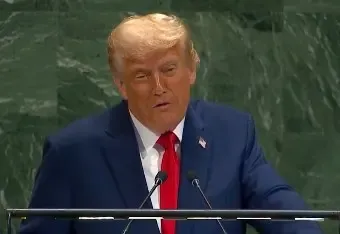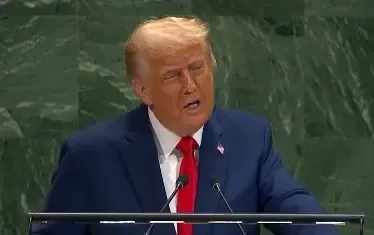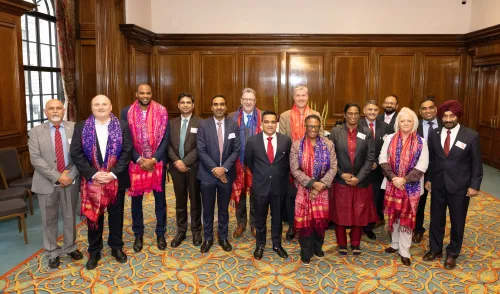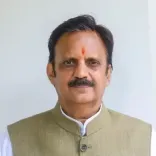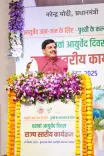Will the Supreme Court Set Timelines for Gubernatorial Actions on Bills?
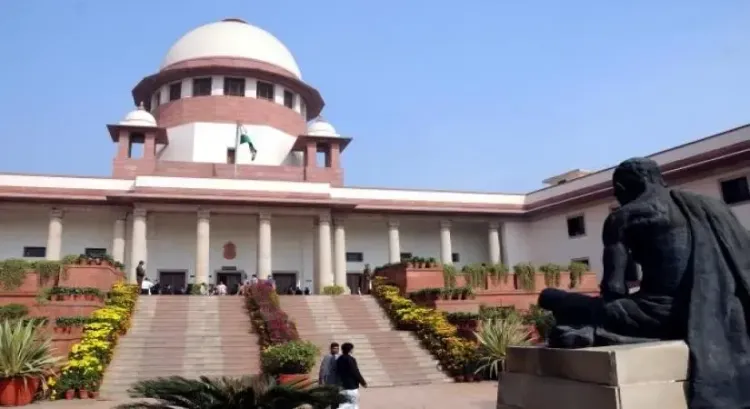
Synopsis
Key Takeaways
- The Supreme Court is deliberating on the Presidential reference regarding gubernatorial timelines.
- Arguments have been presented over a period of 10 days.
- The case involves several opposition-ruled states.
- The decision may redefine the balance of power in governance.
- Article 143 provides a framework for the President to seek Supreme Court advice.
New Delhi, Sep 11 (NationPress) The Supreme Court has reserved its judgment on the reference from the President under Article 143 of the Constitution, which requests the court’s insight on whether it is possible to impose timelines on Governors regarding actions on Bills passed by state legislatures, given the lack of a constitutionally-mandated time frame.
A Constitution Bench led by Chief Justice of India B.R. Gavai has engaged in oral deliberations over a span of ten days, hearing arguments from Attorney General R. Venkataramani and Solicitor General Tushar Mehta for the Central Government, as well as representatives from opposition-governed states, including Tamil Nadu, West Bengal, Kerala, Karnataka, Telangana, Punjab, and Himachal Pradesh, who oppose the Presidential reference.
On July 22, a five-judge Bench, which included Justices Surya Kant, Vikram Nath, P.S. Narasimha, and Atul S. Chandurkar, issued notices to the Central Government and all state administrations regarding the case titled “In Re: Assent, Withholding or Reservation of Bills by the Governor and the President of India,” and sought the assistance of AG Venkataramani, the top legal officer of the Union.
Following the apex court ruling on the Tamil Nadu Bills matter, President Droupadi Murmu had requested the Supreme Court in May this year to provide its opinion on the options available to a Governor when a Bill is presented to them under Article 200 of the Constitution.
Earlier, in April 2025, a two-judge Bench of the Supreme Court utilized its inherent powers under Article 142 of the Constitution to resolve a deadlock between the Tamil Nadu government and Governor R.N. Ravi concerning delays in granting assent to Bills passed by the Assembly.
The Bench ruled that Governor Ravi’s refusal to approve ten Bills in Tamil Nadu was both “illegal and arbitrary”, establishing a three-month timeframe for Presidential and gubernatorial approval of Bills passed by the legislature for a second time.
“The President is required to make a decision on the Bills reserved for his consideration by the Governor within three months from the date such reference is received,” the Bench of Justices J.B. Pardiwala and R. Mahadevan stated.
If no decision is made within this timeframe, states can file writ petitions seeking a writ of mandamus against the President, clarified the Justice Pardiwala-led Bench.
The apex court leveraged its extraordinary powers to declare the ten withheld Bills as having been assented to on the date they were presented to the Governor after being reconsidered by the state legislature.
The court maintained that once a Bill is returned, re-passed by the legislature, and presented again to the Governor, it cannot be reserved for the President’s consideration.
This judgment seemingly subjected Presidential actions to judicial scrutiny by advocating a three-month deadline for granting assent to Bills, prompting the President to make a reference under Article 143 of the Constitution.
Article 143 permits the President to call upon the advisory jurisdiction of the Supreme Court on matters of public significance or constitutional interpretation.
In this reference, President Murmu posed the question: “Is the Governor obligated to adhere to the advice provided by the Council of Ministers while exercising all options available when a Bill is presented to him under Article 200 of the Constitution of India?”
Additionally, the Presidential reference questioned whether the Governor's constitutional discretion concerning Bills is justiciable, given that Article 361 of the Constitution imposes an absolute prohibition on judicial review regarding gubernatorial actions.
“In the absence of a constitutionally-mandated timeline and the method of exercising powers by the President, can timelines be established and the manner of exercise be outlined through judicial orders for the President’s discretion under Article 201 of the Constitution of India?” the President asked the apex court to consider and report its opinion.


